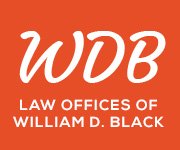Inventions, literary and artistic works, designs, symbols, names, and pictures used in business are all examples of intellectual property (IP). Intellectual property can be legally protected through patents, copyright, and trademarks, which allow individuals to profit financially or gain notoriety from their inventions.
Intellectual property rights are the ownership rights a person has over their original inventions or creations. If the creation has an economic value, it is important to seek safeguards to legally protects the rights of the creation, so no one can take the idea and use it for their own profit.
Protection Through Patents
Utility patents provide 20 years of protection for several types of ideas. A patent can only protect an invention that is new or original; therefore, you cannot patent a product that already exists. A patent is an exclusive right that forbids anyone else from exploiting an invention or idea.
A patent application is not a guarantee of approval, and it can be costly and time-consuming. Only around 53% of applicants receive a patent, according to the U.S. Patent and Trademark Office (USPTO). USPTO grants and issues all patents within the United States and has a very thorough process for all applications.
Copyright Protection for Intellectual Property
Written and artistic creations are protected by copyrights for the creator’s lifetime plus an additional 70 years after their life. Copyrights are easier and cheaper to obtain than patents and can be obtained through the U.S. Copyright Office.
Since original ideas cannot be protected, these creative works serve as a concrete reflection of the creator’s original concepts. Manuscripts, books, song lyrics, artworks, photos, sound recordings, and other creations are all protected by copyrights.
The original work is protected by a copyright as soon as it is created, but registration grants owners of copyrights additional, exclusive rights. It enables owners to seek monetary damages and legal expenses in the event of a lawsuit and can assist in enforcing their rights against infringement through litigation.
Trademark Protection for Intellectual Property
Phrases, symbols, words, and emblems that identify one’s goods or services can all be protected by trademarks. A trademark registration is renewed every ten years and is valid for as long as the mark is used in commerce. As a result, trademarks rank among the most important IP protections for companies.
Intellectual property ensures that a business is consistently identifiable to customers. As a result, if a competitor’s logo has a similarity to another business that could confuse customers, and it is unlikely that a trademark will be registered to the similar logo.
The same office that issues patents also issues trademarks. The United States Patent and Trademark Office has set up a process for owners to properly register their trademarks.
Protecting Trade Secrets
A business may choose to guard its trade secrets and not disclose them to outside parties. Trade secrets are a type of intellectual property. This could be done to safeguard a financial advantage that would be at risk if the trade secret were to leak to the public or were to be taken by an adversary party.
Trade secrets do not provide official protection for intellectual property because they are not made public and are not registered with any official office. However, any theft of a trade secret is criminal in court as long as an owner took the necessary steps to preserve it. Given that corporate espionage (also known as intercompany theft of ideas) is a federal violation, those that steal a trade secret could face criminal punishment.
The Business Attorneys at the Law Offices of William D. Black
Hiring a knowledgeable attorney to help protect your intellectual property rights can be an invaluable asset, especially when it comes to filing for a patent or trademark.
Call Arizona business and commercial law attorney William D. Black to arrange for a free initial consultation. We can be reached at (480) 680-8519, through our toll-free number, (844) 224-0054 or online. Call us for a confidential, complimentary initial consultation.
